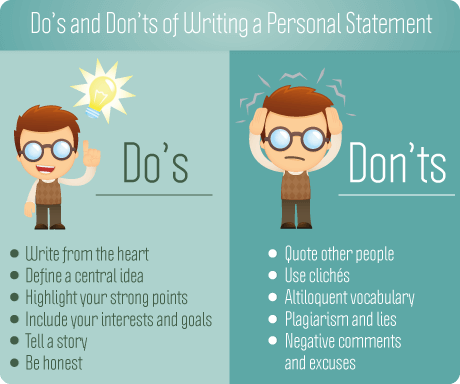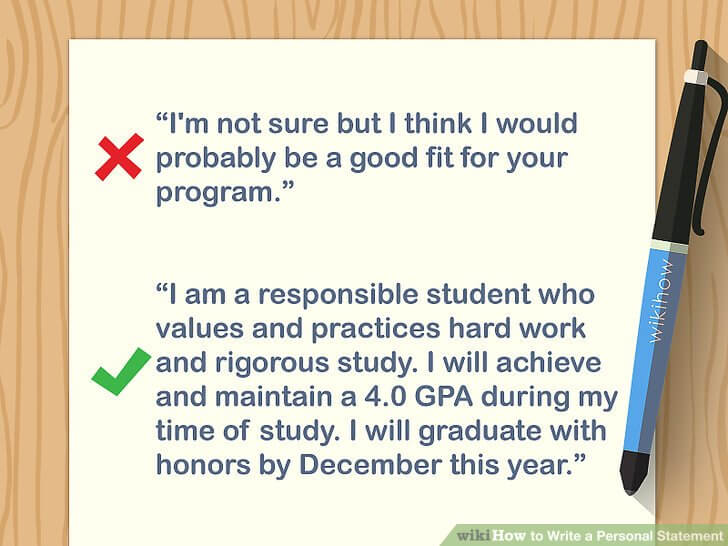As a prospective grad student, you often will be asked to submit a Personal Statement along with the Statement of Purpose. Not all schools want that, if some schools ask for it — it will do nothing but obfuscate you. You might be wondering if you can use the same basic content regardless of whether the program asks for a ‘personal statement’ or a ‘statement of purpose’. Even though there are noteworthy overlaps between the tow, but there are subtle differences. Therefore, shaping these two statements in the right way is a critical task.
However, different schools might ask for different formats, and, in general, applicants have a common tendency to write a common format, this might lead to off-topic writing. No matter how creative and special story is, even a slight deviation from the topic could lead to an automatic filtering by the admission committee because you have failed to maintain the requirements and deliver what they are asking for.
Now, let’s have a look at the disparities between the two.
Personal Statement:
The keyword “personal” already indicates you that it is somewhat different from a statement of purpose. It gives you more leeway as by definition it gives you more chance to flaunt about your academic accomplishments, any major skills you have, and any extracurricular activities in which you have participated. You can write about anything and everything about your life, as long as it is relevant to the program to which you are applying.
A pitfall lies in this type of document is that some applicants have too much information to write them down, and they do not know how to chose relevant details or maintain the coherence among the stories. So, you need to structure your essay logically, and most importantly your story should make sense. Suppose, you mentioned in your statement is that from your very early schooling period you used to do scientific experiments, then probably you might end up in participating in Physics Olympiads for couple of times or win some awards in similar competitions. So, all of your stories should be able to pass through the lie detecting test. And, an expert reader will easily be able to find out whether you are telling the truth or not. So, don’t lie. The best personal statements are straightforward, reflective, and honest — so Be Yourself.
In general, a strong personal statement must:
- Focus on the must serve as a junction of your personal, academic, and professional lives
- Provide detailed information about your relevant life experiences that have developed your character, work-ethic, and perspective
- Explain how your background will allow you to contribute a unique perspective to the community

Statement of Purpose:
Just by looking at the title, you should be able to understand that this document should act as a bridge between your past and the future you are longing to build with the degree, at a particular university. It requires a substantial amount of research into the particulars of the school you are intending to apply. Before you start structuring your SOP, you must prepare the answers of the following questions:
- Why you are applying to this school?
- What is the field of research that attracts you most?
- Why you can’t pursue this in your own country?
- With which Professor(s) you want to work and how does their work are parallel to your interest?
- What you are looking to gain out of this academic experience?
- What are your career goals?
- How your background have prepared yourself to develop this interest?
- How your past academic and research experiences have shaped you?
- Why should the school hire you?
Sometimes, schools will provide a set of questions, known as “prompts”, which you need to answer in detail and obviously to the point. Failure to answer the question automatically marks you as an unfit candidate. It is critical to direct your response to the particular questions at hand. The admission committee wants to see how organized and prepared you are for the program. If you want to know more about writing a good SOP, you might want to read this article.

Some Tips for Writing a Personal Statement:
- Some school use the personal statement for offering various fellowships based on student’s background. If you’ve overcome any barriers to education, you must explain those experiences in your personal statement.
- If you haven’t any significant barriers, then don’t stretch the truth. Instead, you should talk about various experiences that have shaped your perspective or widened your understanding of the barriers that others face. Even though you haven’t experienced any, but your understanding will drive you to help others who do, and you can discuss how this program will help you to achieve the goal.
- Though the personal statement is an opportunity to share information about yourself that might not directly connected towards your academic career, you should still explain how personal experiences ultimately make you a stronger student.
What if a school asks for both — Personal Statement and Statement of Purpose?
Getting the request for both a ‘personal statement’ and a ‘statement of purpose’ can instill dread in the hearts of applicants. If this is the case, then you should write our statement of purpose first to write about your research skills and experience, internships and reasons for choosing the program. In your personal statement, you can write in details about your journey towards choosing your field, significant experiences not directly related to your field, and other aspects of your life that demonstrate your character and potential.
Disclaimer: No A.I. was used to generate any portion of this content.

